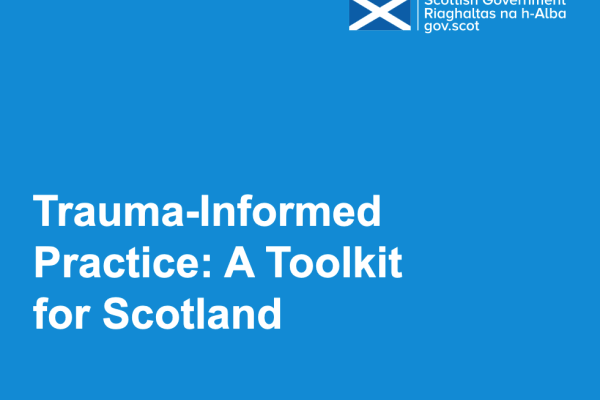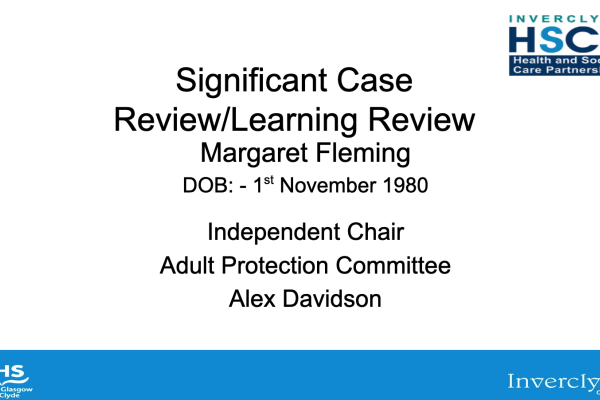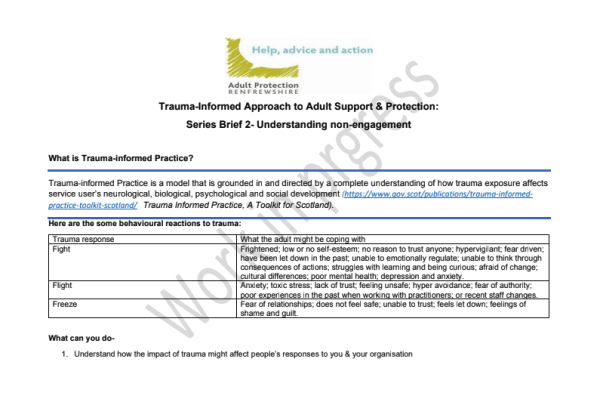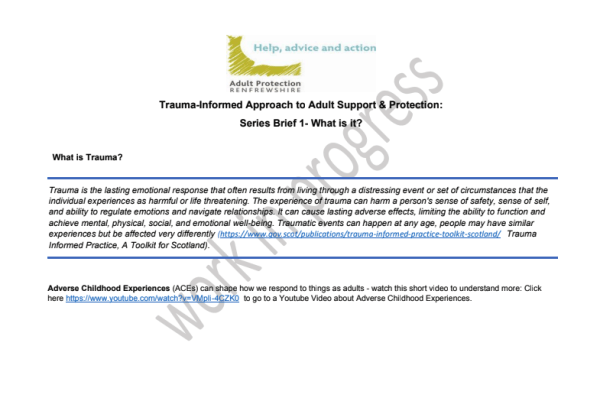A roadmap for creating trauma-informed and responsive change: Guidance for organisations, systems and workforces in Scotland
This roadmap has been designed to help services and organisations identify and reflect on progress, strengths and opportunities for embedding a trauma-informed and responsive approach across policy and practice. It is based on evidence, learning and good practice from the Scottish context alongside existing relevant Scottish frameworks and guidance. It draws extensively on what people with lived experience of trauma have said would help improve access to support, reduce re-traumatisation, recognise resilience and support recovery.






